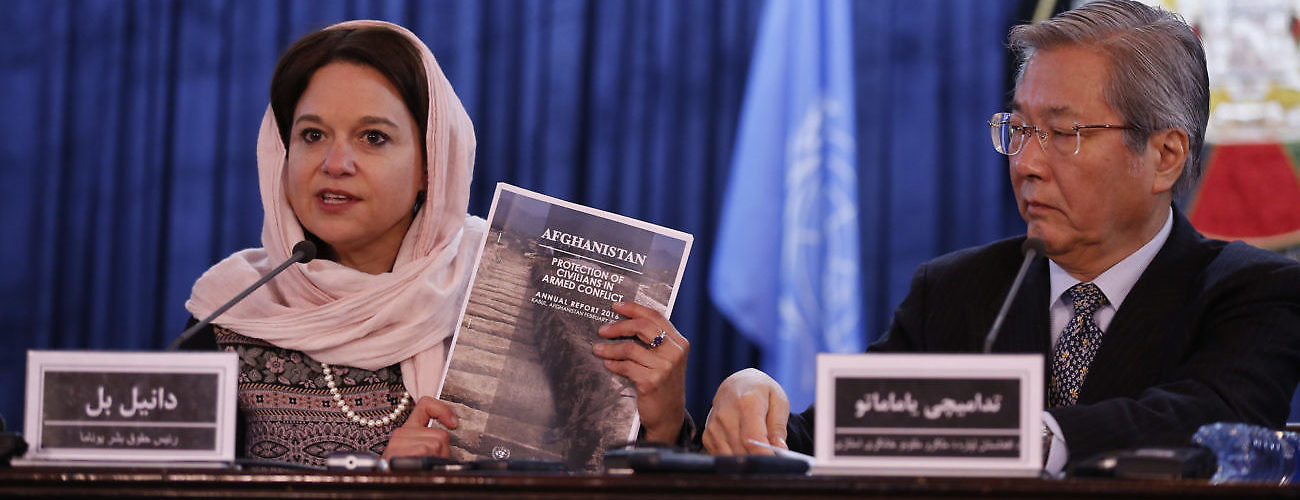UNAMA launches its annual report on the protection of civilians in armed conflict in Kabul, Afghanistan, February 6, 2017. (UN Photo/Fardin Waezi)
UN special political missions (SPMs) regularly operate in conflict and post-conflict settings in which local civilian populations face the ongoing threat of violence from armed actors—a trend that is likely to continue if an apparent increased preference for SPMs over peacekeeping operations persists. Despite this trend, understandings of the roles of SPMs in protection have remained vague and ambiguous, leaving a conceptual and operational gap that urgently needs to be filled.
This study sets out the parameters for a policy and research agenda on SPMs and protection. It analyzes the legal, structural, and operational characteristics of SPMs and describes how different conceptions and operational modes of protection apply to them. It then analyzes the protection mandates and roles played by the SPMs in Afghanistan, Syria, Colombia, and Sudan and presents an initial, non-exhaustive typology of protection roles for SPMs.
The challenges faced by SPMs in planning and executing such a wide range of protection functions calls for greater conceptual and operational analysis and guidance. As it looks ahead to articulate a system-wide agenda for prevention as foreseen by the 2020 Call to Action for Human Rights, the Secretariat has an opportunity to articulate a more explicit and structured vision for the role of SPMs in protection. At the same time, it needs to avoid situations where the Security Council gives missions protection mandates without giving them the political backing or tools they need to implement them. Toward this end, the UN should:
- Enrich conceptual and operational understandings of protection tasks under Chapter VI of the UN Charter within existing terminology and frameworks;
- Compile good practices, dilemmas, and lessons learned on protection in SPMs;
- Only issue SPMs an explicit protection mandate where doing so would add value;
- Not let SPMs be drawn into the gulf of political will between protection and political solutions in the Security Council;
- Identify best practices for coordination across humanitarian and prevention or peacemaking tools in politicized humanitarian-access negotiations; and
- Broaden SPM monitoring and public reporting on protection as a core component of political strategies.








